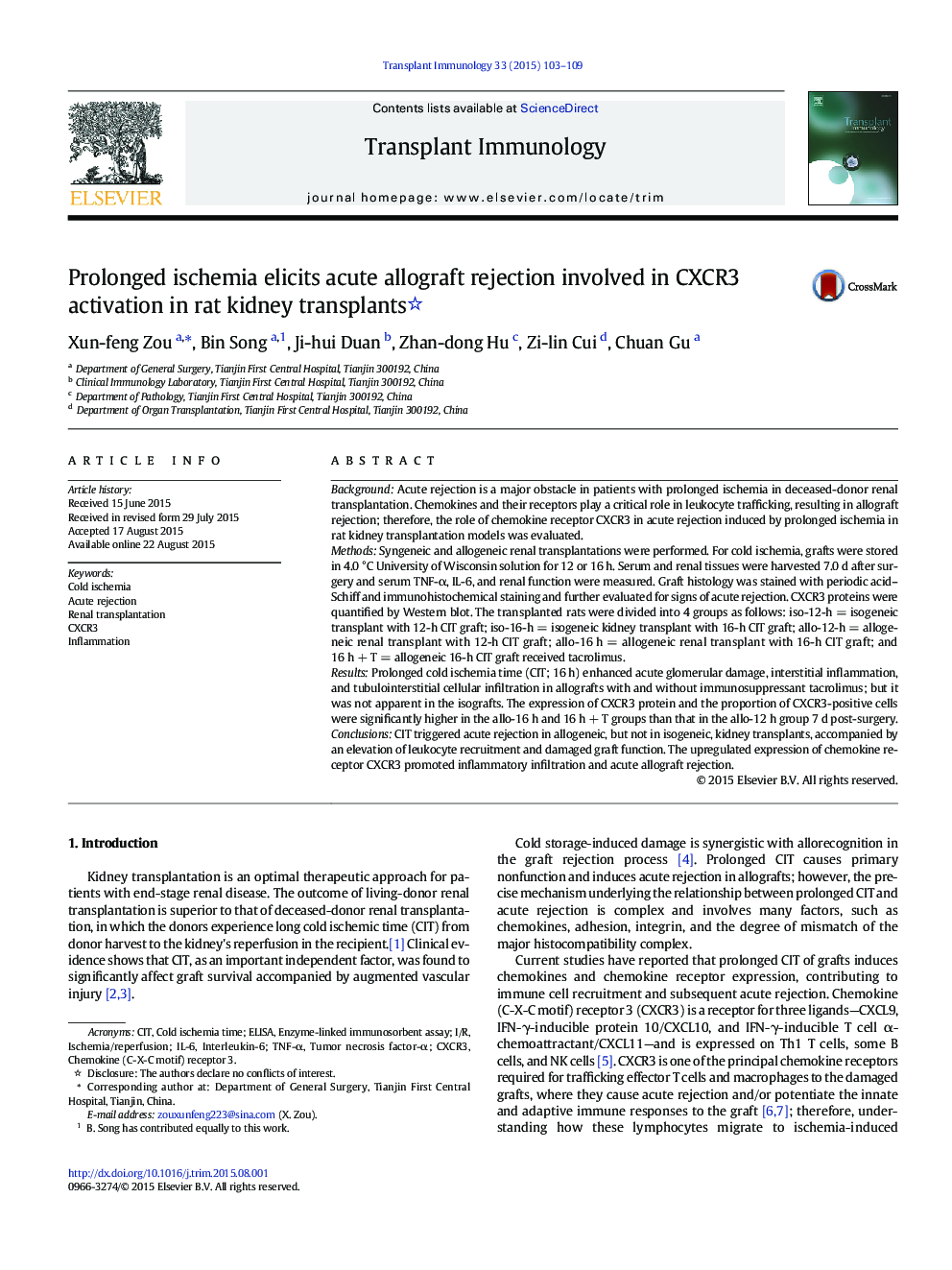| Article ID | Journal | Published Year | Pages | File Type |
|---|---|---|---|---|
| 3392026 | Transplant Immunology | 2015 | 7 Pages |
•The impact of prolonged cold ischemia on graft rejection was investigated in rat kidney transplantation.•The comparison was conducted between isogeneic (Lewis to Lewis) and allogeneic (F344-t-Lewis) rat strain combinations.•Chemokine receptor CXCR3 involving the development of acute rejection of renal transplantation.
BackgroundAcute rejection is a major obstacle in patients with prolonged ischemia in deceased-donor renal transplantation. Chemokines and their receptors play a critical role in leukocyte trafficking, resulting in allograft rejection; therefore, the role of chemokine receptor CXCR3 in acute rejection induced by prolonged ischemia in rat kidney transplantation models was evaluated.MethodsSyngeneic and allogeneic renal transplantations were performed. For cold ischemia, grafts were stored in 4.0 °C University of Wisconsin solution for 12 or 16 h. Serum and renal tissues were harvested 7.0 d after surgery and serum TNF-α, IL-6, and renal function were measured. Graft histology was stained with periodic acid–Schiff and immunohistochemical staining and further evaluated for signs of acute rejection. CXCR3 proteins were quantified by Western blot. The transplanted rats were divided into 4 groups as follows: iso-12-h = isogeneic transplant with 12-h CIT graft; iso-16-h = isogeneic kidney transplant with 16-h CIT graft; allo-12-h = allogeneic renal transplant with 12-h CIT graft; allo-16 h = allogeneic renal transplant with 16-h CIT graft; and 16 h + T = allogeneic 16-h CIT graft received tacrolimus.ResultsProlonged cold ischemia time (CIT; 16 h) enhanced acute glomerular damage, interstitial inflammation, and tubulointerstitial cellular infiltration in allografts with and without immunosuppressant tacrolimus; but it was not apparent in the isografts. The expression of CXCR3 protein and the proportion of CXCR3-positive cells were significantly higher in the allo-16 h and 16 h + T groups than that in the allo-12 h group 7 d post-surgery.ConclusionsCIT triggered acute rejection in allogeneic, but not in isogeneic, kidney transplants, accompanied by an elevation of leukocyte recruitment and damaged graft function. The upregulated expression of chemokine receptor CXCR3 promoted inflammatory infiltration and acute allograft rejection.
